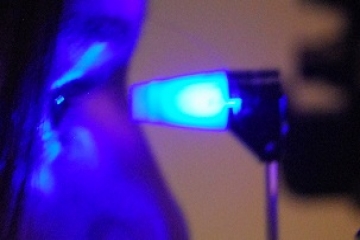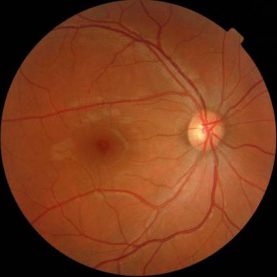GLAUCOMA SURGERY
Glaucoma is an eye disease caused by an increase in intraocular pressure, which leads to the atrophy of the optic nerve and consequently a reduction in the field of vision. If this situation goes uncontrolled, it can lead to the patient becoming irreversibly blind.
Aqueous humor is a transparent liquid which circulates in the anterior portion of the eye (the anterior chamber). This liquid is drained towards the outside of the eye through a drainage system similar to a sieve ( trabecular meshwork ). When the drainage of this liquid fails, it accumulates inside the eye, provoking an increase in intraocular pressure. High intraocular pressure can cause damage to the optic nerve and subsequently a loss of vision. It is very important to reduce and control the intraocular pressure and to do so we must use all the means at our disposal, anti-glaucomatous eye drops, laser surgery or another type of surgery for glaucoma.
When should glaucoma surgery be carried out ?
When medication or laser surgery prove insufficient for controlling intraocular pressure, surgery is advisable, whether that be one of the different filtering surgeries or the most common, which is called a trabeculectomy.
How is a trabeculectomy performed ?
Under local anesthetic, the ophthalmic surgeon makes a small flap in the sclera and through this they will penetrate the anterior chamber of the eye and there perform a surgical iridectomy ( a small resection of the iris ). By doing this, the liquid will flow from the inside of the eye outwards, accumulating in a sac situated beneath the conjunctiva ( filtering sac ). This liquid will then be reabsorbed through the lymphatic vessels and blood vessels. The scleral flap will be closed firmly with fine nylon stitches ( finer than a human hair ) and it is possible that over the following days the ophthalmologist may have to remove some of these stitches with the aid of laser to allow the liquid out and finally they will proceed to suture the conjunctival sac with absorbable stitches.
It can often be necessary to apply medication during and after surgery which will help to reduce scarring of the tissue.
What should you expect if being operated on ?
Before surgery :
You should continue to use your anti- glaucomatous medication right up until the day of surgery. If you are taking antiplatelet drugs ( Aspirin, Sintrom, Coumadin…), these should be discontinued some days before surgery. The exact amount of time that the patient should stop taking this type of medication for, must be coordinated with their internist or cardiologist.
On the day of surgery :
A trabeculectomy is performed on an outpatient basis, with local anesthetic and it may be necessary that the anesthetist administers some type of medication to relax the patient during surgery. The procedure generally takes less than an hour to perform, but it can take longer if you have previously been operated on , if your eye is inflamed or if there are abnormal blood vessels.
After surgery :
For the procedure to be successful, postoperative care is as important as the surgery itself. In follow-up appointments your ophthalmologist will check the filter bag, the appearance of the eye, intraocular pressure and the posterior portion of the eye (retina and choroid). The patient should refrain from rubbing the eyes, bending over or making any type of physical effort until eye pressure has stabilized and their ophthalmologist permits it.
After surgery there is not usually intense pain, but there may be discomfort in the eye and an increase in sensitivity. If the patient experiences discomfort and it is necessary, paracetamol can be taken (not aspirin). If you suddenly feel a strong pain,especially if this is accompanied by a loss of vision, you should report this to your ophthalmologist immediately.
With surgery, pressure is controlled in 3 out of 4 patients. Although post-surgery appointments will continue to be necessary, many patients will no longer need to use eye drops. However, if the new way for the liquid to come out closes over or the liquid drains too much, a second operation may be necessary.
What will happen with my vision ?
The patient will notice a fluctuation in their vision during the first few days after surgery. There could be blurred vision over the following weeks. After surgery there may or may not be changes in refraction. If a cataract or other complication appears, the patient’s vision may not return to what it was before surgery. Surgery cannot bring back the vision that has been lost through glaucoma.
Complications : As with all surgeries there exist risks such as : infection, bleeding, loss of liquid through the wound, over-filtration, cataracts, loss of vision, etc… Although the success rate of the surgery is high, sometimes one surgical procedure alone is insufficient to detain the progression of glaucoma. Another operation and/or continuing with anti-glaucomatous treatment with drops may be needed.
An eye which has had glaucoma surgery and which has a functioning filter bag is always more susceptible to infection. A red eye and discomfort may be a sign of infection and requires urgent medical attention.
Are there alternatives to glaucoma filtering surgery ?
Depending on how much it is necessary to decrease the pressure in order to detain the progression, the degree of severity and the type of glaucoma , there may exist other types of treatments.


